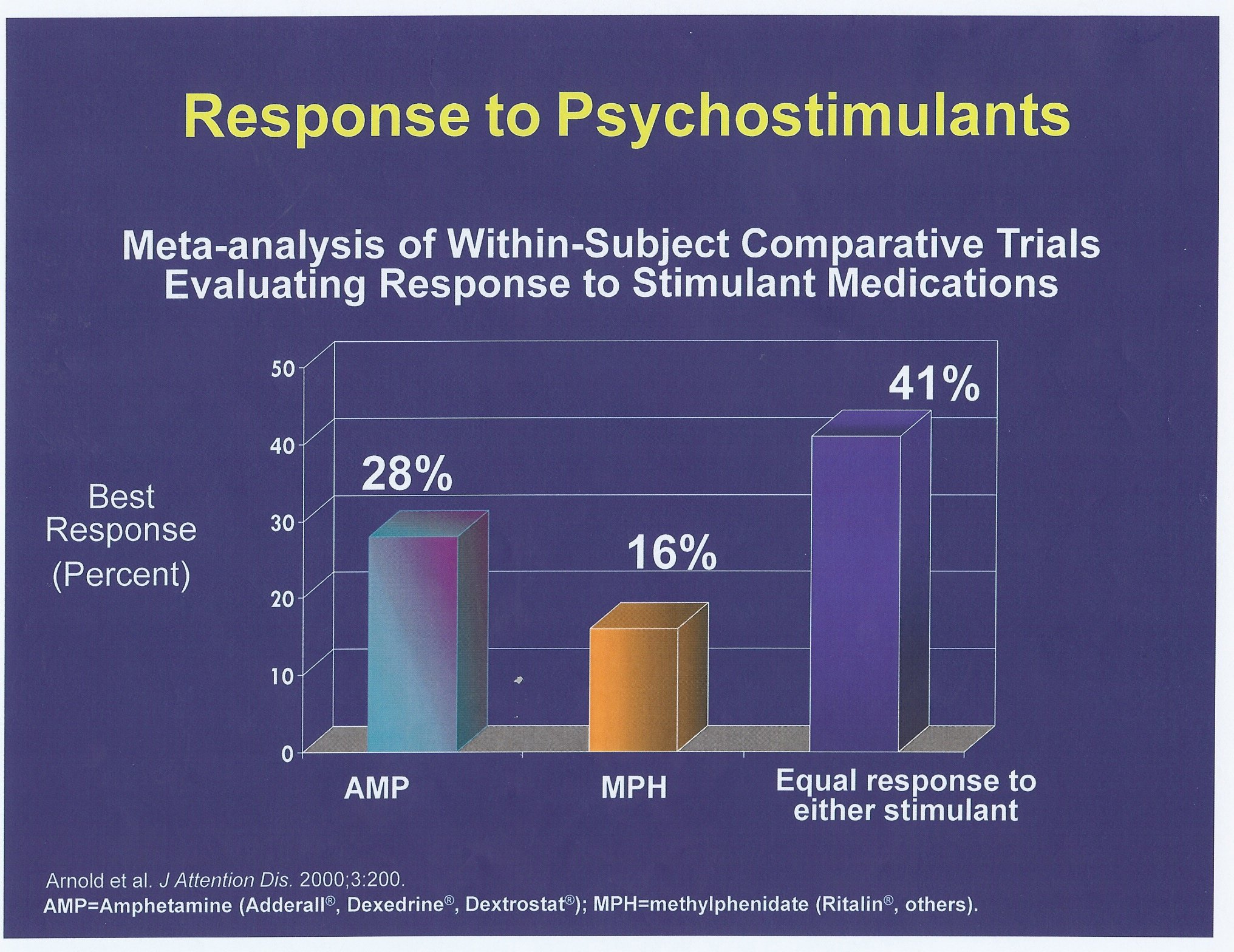When I first heard that Dr. Phil devoted a program to ADHD (Sept. 28 ’04) called "Parenting with Pills" in which he sharply criticized the overuse of medication to "control behavior," instead of using good parenting skills, my response was "if all you have is a hammer, you treat everything as a nail." How ironic that when I went on his website, the first thing I read was a comment from Dr. Frank Lawlis, who has written a book, The ADD Answer, in which he criticizes doctors by using the same comment about treating everything as a nail (He credits Maslow as being the source on this quote.).
He implies all doctors have is a prescription pad for medication. The fact is the opposite. We physicians can prescribe meds or use education or therapy, but psychologists/counselors can only use talk therapy. For them to criticize meds has a stench of "sour grapes."
But it gets worse. In lieu of medication (they prefer to call them drugs), they recommend "snake oil," specifically diets and biofeedback. These are treatments with no scientific validity or endorsement by any of the reputable organizations, including the National Institute of Mental Health.
What exactly is "snake oil"?
Snake oil is anything that is highly recommended and especially endorsed by a person who has credentials or position of influence. The confusing thing is that due to the placebo effect, "snake oil" has some benefit.
What is the placebo effect?
Placebo is not a sugar pill. It is everything involved in treatment except the active treatment to which it’s being compared. It is the commitment and optimism of the patient, the interaction with staff, especially the doctor, the monitoring of symptoms, etc.
Sometimes the placebo effect alone accounts for over 50% improvement. The more a patient feels understood and cared about by the treater and the more confidence they have in the treater’s experience, the greater the placebo effect. For a treatment to be considered scientifically helpful, it has to add significant benefit above and beyond the placebo effect.
So what’s the problem?
There are several. First, the more charismatic the treater, the greater the placebo effect and more success they will have with "snake oil." To be fair, they may not know it’s snake oil because they see benefit.
A second problem is that the "snake oil" may not just be useless, it may actually make the condition worse. Two recent examples are Neurontin for bipolar disorder and progesterone for PMS. Both had been found to be helpful in open (not placebo controlled) studies. But when the controlled studies were subsequently done, the placebo group actually did better. The Neurontin and the progesterone had actually taken away from the placebo benefit.
Many pseudo treatments for ADHD result in delay of effective treatment at best and possibly worsen their symptoms. Ironically, one of the most comprehensive studies ever, the Multimodal Treatment Study of ADHD in 1999 (MTA) showed conclusively the overwhelming superiority of medication in treating this condition. I will describe this study next, but suffice it to say, "snake oil" won’t cut it.
See ADHD Newsletter


2 thoughts on “Dr. Phil, ADHD and Snake Oil”
Thanks BB for comments regarding OCD and medication. Some conditions like hoarding were previously thought to be OCD and didn’t respond well to medication. But hoarding is closer to ADHD and is more like a behavioral addiction and may respond somewhat to stimulants.
True OCD is associated with some of the most dramatically abnormal activity on brain imaging studies, ironically in somewhat opposite ways from ADHD. OCD has been shown to respond to behavior therapy, but it may need to be done several times per week.
Medication (SSRI’s) is usually helpful, often markedly so – but tends to require higher doses and to take longer (up to 12 weeks) to work. Medication works best combined with behavior therapy. Side-effects can usually be managed by adjusting schedule, changing dose, switching meds, or other strategies. In prescribing meds for any condition, I always think long term and this means benefits must far outweigh any side-effects.
For more information, my newsletter on OCD will be available on the website soon.
# posted by Wayne Jones : 10/19/2004 01:53:31 PM
I am cautious about using meds for my OCD. From what I’ve been told by others who have been on medication, it seems to be a ‘hit and miss’ situation – often minimal improvement with unpleasant side affects. I understand OCD is a different condition from ADHD. I am not anti medication treatment of OCD – I’d like the odds to be a bit better for trying meds.
Thanks for the good info on your blog.
BB
http://www.baileysbroadcast.net
# posted by Anonymous : 10/19/2004 12:30:38 PM